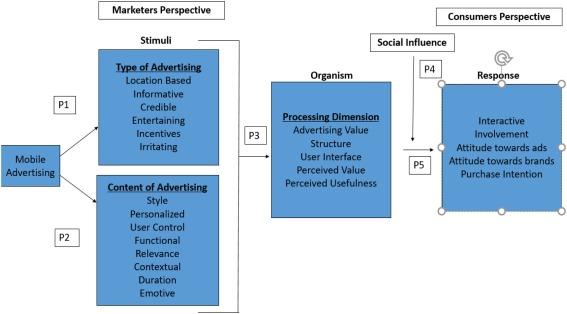Future-Proofing Careers: Essential Strategies for Preparing Students for Jobs of the Future
As technology advances and global industries undergo transformation at lightning speed,the importance of future-proofing careers cannot be overstated. Educators, parents, and students alike are searching for effective strategies to ensure young individuals are equipped for the dynamic “jobs of the future.” This comprehensive guide explores cutting-edge techniques, skills, and actionable advice to prepare students for a workforce defined by change, innovation, and unlimited potential.
Why Future-Proofing Careers matters Now
The job landscape is rapidly evolving due to artificial intelligence (AI),automation,and shifting global priorities such as sustainability and remote work. According to the World Economic Forum, 65% of today’s schoolchildren will work in roles that do not yet exist. With such uncertainty, future-proofing careers isn’t a luxury—it’s a necessity.
- Technology Disruption: Automation is set to replace many routine jobs while creating new opportunities in tech-driven fields.
- Globalization: Cross-cultural collaboration and digital communication are essential soft skills.
- Lifelong Learning: The capacity to reskill and upskill will define career longevity and growth.
Key Strategies for Preparing Students for Jobs of the Future
1.Emphasize Transferable Skills
Today’s in-demand skills go far beyond specific technical abilities. Key transferable skills include:
- Critical Thinking & Problem-Solving: Essential for navigating complex, unpredictable challenges.
- Creativity and Innovation: Helps students stand out in automation-prone industries.
- Collaboration & Communication: Vital for teamwork in a globalized, digital-first work environment.
- Emotional Intelligence: Enables adaptability and effective leadership.
2. Encourage STEM and Digital Literacy
Proficiency in STEM (Science, Technology, Engineering, and Math) fields and digital literacy are foundational for most emerging careers, from data science to robotics. But technical expertise should be paired with an understanding of ethics,security,and responsible technology use. Schools can implement:
- Coding classes and computer science workshops
- Hands-on projects in robotics and automation
- Introduction to AI, blockchain, and cybersecurity
3. Foster Adaptability and Resilience
Automation and innovation may lead to frequent job changes and require career pivots. students should be taught how to embrace uncertainty, manage change, and develop a growth mindset. Practical ways to build resilience include:
- Role-playing unfamiliar scenarios
- Encouraging reflective journaling and mindfulness
- Promoting positive risk-taking and learning from failures
4. Promote Lifelong Learning and Continuous Education
No skillset remains relevant forever. Lifelong learning opportunities should be embedded in both school curricula and extra-curricular paths, such as:
- Encouraging passion projects and autonomous study
- Facilitating online courses (MOOCs), workshops, and certifications
- Supporting mentorship and career coaching programs
5. Support Career Exploration and Real-World Experience
Hands-on exposure to real-world work environments is invaluable. Internships,job shadowing,apprenticeships,and project-based learning give students practical insights into diverse industries and roles. Tips for enhancing career readiness include:
- Organizing site visits to innovative local companies
- Inviting professionals for guest lectures and Q&A sessions
- Setting up virtual mentorships with global experts
Benefits of Future-Proofing Student Careers
Investing energy and resources in future-proofing careers gives students the confidence and agility required to thrive—no matter how the job market evolves.
- Competitive Edge: Early preparation gives students a head start in high-growth industries.
- Adaptability: Students are better prepared to pivot as industries shift and new roles emerge.
- Higher Employability: transferable and technical skills open doors to a variety of career paths.
- Personal Fulfillment: Students can align work with their interests and strengths, leading to greater job satisfaction.
Practical tips for Educators and Parents
- Start Early: Introduce future skills as early as elementary school through play, group activities, and problem-solving tasks.
- personalize Learning: Tailor instruction to accommodate diverse talents, learning styles, and career aspirations.
- Leverage Technology: Use educational technology, simulations, and online communities to expand access to global knowledge.
- Encourage Networking: Guide students in building a robust professional network through clubs, conferences, and alumni resources.
- Promote reflection: Encourage regular goal-setting and reflection to build self-awareness and career clarity.
Case Studies: Future-Proofing in Action
Case Study 1: The Singapore Model
Singapore’s education system has made headlines for its comprehensive approach to future-ready learning. By integrating coding, design thinking, and entrepreneurship into the core curriculum—alongside robust industry partnerships—Singapore enables students to develop both technical proficiency and real-world skills.
Case Study 2: Finland’s Phenomenon-Based Learning
Finland employs interdisciplinary, project-based learning that mimics real workplace problem-solving. By breaking down barriers between subjects, students learn how to approach challenges with creative and critical thinking, better reflecting the demands of future careers.
First-Hand Experience: Student Voices
“My school encouraged us to code, build apps, and collaborate on global projects.Now, I feel confident pursuing a tech career anywhere in the world.”
– Maya, high School Senior
“Real-world practice through internships gave me a sense of direction and allowed me to build skills I couldn’t get from textbooks.”
– Daniel, University Student
Frequently Asked Questions (FAQs)
- What are the most important future-proof skills?
- Critical thinking, adaptability, digital literacy, creativity, and collaboration are consistently cited as essential for the jobs of the future.
- How can schools prepare students for jobs that don’t exist yet?
- By emphasizing transferable skills, promoting curiosity, fostering lifelong learning, and offering hands-on, real-world experiences.
- Does future-proofing mean focusing only on technology?
- No. While tech skills are important, soft skills, resilience, and an ability to learn new things regularly are just as critical.
- Why is digital literacy important?
- Digital literacy is essential not only for job-specific tasks but also for navigating everyday life in a technology-driven world.
Conclusion: Shaping Successful, Future-Ready Students
Future-proofing careers is about more than anticipating the next big thing—it’s about equipping students with the mindset, skills, and tools to navigate whatever the future brings. By investing in transferable skills,digital literacy,adaptability,continuous learning,and practical experiences,educators and parents can empower the next generation to embrace and thrive in their future careers.Preparing students for jobs of the future has never been more crucial—and with intentional strategies, the possibilities are endless.
Empower your students today for the limitless opportunities of tomorrow. The future starts now.

